Any VPN can provide encryption but only a few VPN providers will protect your privacy at all costs. In order to truly keep their users anonymous, a VPN must keep no logs. Not even server logs for troubleshooting. While tons of VPN services claim to be ‘non-logging’ in reality, most don’t deliver on this claim.
I’m going to teach you why most VPNs don’t live up to their ‘Non-Logging’ advertising. But first, here are the companies that truly don’t keep logs. Period.
Non-Logging VPN Provider Summary
Here are the top choices among true non-logging providers. We’ve also included a link to our review of each provider and a link to each providers’ website including best available pricing.
These providers will be discussed in greater detail in the sections below
| Rank | VPN/ Review Link | Country | Best Offer | Website |
|---|---|---|---|---|
1 | Private Internet Access | USA | $3.33/month | Visit VPN |
2 | Torguard | USA | $4.99/month | Get Offer |
3 | IPVanish | USA | $6.49/month | Get Offer |
4 | VPN.AC | Romania | $4.80/month | Get Offer |
5 | Proxy.sh | Seychelles | $3.33/month | Get Offer |
The dirty secret about many ‘No Logs’ VPNs
When most VPNs say ‘we don’t log’ what they mean is “We don’t actually record your web activity and lists of websites you visit.”
There’s a huge difference between recording your activity (which virtually no VPN does) and keeping no logs. Nearly all VPN providers (including many self-described ‘non-loggin’ VPNs) keep ‘Connection Logs‘ which include connection metadata like: Incoming/outgoing IP address, timestamp, amount of data transferred, ports used, etc.
Connection logs generally aren’t intended to reduce your privacy, they are used for server maintenance, troubleshooting technical issues, and preventing abuse of their network by customers. The reality is, though, that connection logs can theoretically be used to trace a VPN ip address back to a specific customer account.
Shared vs Private IP addresses (and your privacy)
To determine how much connection logging affects your privacy, you need to know whether your VPN uses private or shared ip addresses. Most VPN’s utilize shared IPs, where multiple users (often 20+) will share the same IP address.
This actually increases your privacy because it makes it difficult to trace an individual VPN user based on the IP address they were assigned.
But if a VPN uses private IP addresses, where each user has their own unique IP when connected to the VPN, then it is trivially easy to trace an individual user based on their assigned IP address.
Before you get too worried, let me point out that most people don’t need to choose a non-logging VPN. It’s unlikely that anybody is trying to trace your internet activity. That said, I always prefer extra privacy when given the choice.
I do specifically recommend that all BitTorrent users should choose provider that doesn’t keep connection logs.
We’ve got a FAQ about VPN logs a bit later in the article, as well as more tips on how to make your VPN even more secure.
But first, let’s look closely at some of our favorite anonymous VPN services, so you can get an idea of which one is the perfect fit for you.
The best anonymous VPNs in-depth
Let’s take a closer look at some of our favorite VPNs from this list. Also make sure to check out our reviews for even more detailed info.
Private Internet Access
Private Internet Access is one of the world’s first VPNs to adopt a ‘No Logs’ policy, and they did it from the very beginning. They don’t provide usage statistics, but they likely have more subscribers than any other provider in this category. This is largely because of their incredibly low price (as low as $3.33/month with an annual plan). Most VPNs won’t (or can’t) match PIA’s price.
Despite the affordable pricing, PIA has a ton of extra features, including: DNS Leak protection, a VPN Kill-Switch, adjustable Encryption Strength (up to 4096-bit keys!).
They also throw in Socks5 proxy service at no extra charge. (Torrent users in particular will love this feature as you can run your torrents through the proxy and VPN simultaneously for maximum privacy).
Also nice are the 5 simultaneous connections PIA allows, which means you can connect 5 different devices to their network at the same time from a single account (most providers only allows 1-2).
IPVanish VPN
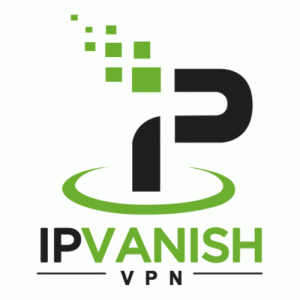
I would classify IPVanish as more of a general-purpose provider. They ideal for users with high-speed connections so if your ISP gives you 25+mbps and you want to get the fastest VPN speeds possible, you should try IPVanish first.
While their security is strong (256-bit AES encryption) and speeds are fast (capable of 100+ mbps) they don’t offer as many settings or options as PIA when it comes to their VPN software.
On the other hand, they do have live chat tech support, VPN clients for every major platform (Mac, Windows, iOS, Android), and a 7 day refund policy so you can take their network for a test drive at no risk.
So if you’re in the market for an anonymous VPN and you’d like your speedtests to look like this…
You owe it to yourself to take advantage of IPVanish’s 7 day money-back guarantee. Right now they’re also offering a 46% discount on their 1 year plans.
Proxy.sh (Anonymity2)
Proxy.sh is a very unique VPN provider because they take privacy/anonymity to a new level altogether. They’re one of the only VPN providers to publish a transparency report which documents every warrant, DMCA notice and law enforcement request regarding their servers and network.
They also make use of a ‘warrant canary‘ which is a concept designed to get around a theoretical gag order and inform their users of a government subpoena.
Their focus on privacy goes even further, however, and Proxy.sh provides integration with 2 encrypted messaging tools, obfsproxy (for avoiding VPN detection), and VPN Over Tor (which allows you to route your VPN packets through the tor Onion network.
If that isn’t enough, Proxy.sh also includes Https and SOCKS proxy service with every VPN package. Like PIA, Proxy.sh’s annual plan is only $3.33/month.
Proxy.sh is a relative newcomer in the industry, so their software isn’t quite as polished as their competitors, but their security is top-notch, featuring 256-bit AES encryption and 4096-bit keys (the industry standard is only 2048-bit).
They’re also one of the only VPN providers with Open Source VPN software. This means their code is open to public inspection, so you don’t have to worry about built in backdoors.
FAQ about VPN Logs/non-logging VPNs
I realize choosing the right VPN can be confusing, but it doesn’t have to be. Here are some of the most common questions people ask regarding VPN logs. If you’ve got additional questions, please leave a comment when you’re done reading this post and I’ll do my best to help you out.
How do you know a VPN really doesn’t log?
The truth is, you can never know for sure. You have to rely on their privacy policy and their reputation as a company. In reality, I tend to trust the guarantees of most major providers because they stand to lose a ton of business if it ever came out that they were lying.
Do I NEED a non-logging provider?
It depends. If your intended VPN use requires anonymity (for example if you’re publishing politically sensitive blog posts or comments online) you should absolutely choose a non-logging provider. We also suggest it for Bittorrent users (and it’s no surprise that the most ‘Torrent-Friendly’ VPNs tend to keep the fewest logs).
If you’re just trying to unblock websites, or enhance your security on open wifi networks you shouldn’t mind if a VPN keeps connection logs. Don’t let that deter you from choosing a non-logging provider as extra anonymity is never a bad thing.
Why would any VPN keep logs?
There’s a lot of reasons VPN keep connection logs. First off, many countries have data retention laws that require ISPs (and sometimes VPN services) to record connection data as a precaution. That’s why most non-logging providers tend to be located in the handful of countries that don’t have any data retention laws for VPNs.
Beyond that, connection logs serve a valid purpose for a VPN provider. They help to track down problems and are frequently used to prevent abuse (no VPN wants people using their service to commit crimes, harass people, or hack websites).
In general a VPN will keep connection logs for the past week or two, and destroy the oldest days logs and add the newest day. Some VPNs keep connection logs for as little as 24 hours (which is nearly as good as no logs).
How to make your VPN even more secure
A VPN can only hide your identity when you’re connected to it.
Now this probably seems obvious to you, but here’s what I really mean. Your identity is only as safe as your VPN connection is reliable. If your connection fails, your true IP address could be exposed to whatever website you’re visiting or (for torrent downloads) to your entire torrent swarm.
Fortunately many VPN’s software includes a kill-switch function which designed instantly kill your internet access if your VPN disconnects. Every VPN mentioned in this article includes a kill switch, but you do have to make sure to enable it since using a kill-switch is optional. It’s as simple as checking 1 box in the settings menu.
There are also less dangerous leaks such as DNS leaks, and WebRTC leaks. Make sure to read our ultimate guide to making your VPN even more secure.
Torrent downloads and VPN Logs
It shouldn’t be a surprise that torrents can bring both network strain and legal headaches for VPN providers. Not everyone is going to download responsibly.
By choosing to not keep logs, a VPN can greatly enhance your privacy, while making their lives easier as well. This is because they never have to worry about identifying users or cancelling accounts: because they can’t.
Any time a non-logging VPN service receives a legal request, the response tends to be pretty standard. Usual it reads like this:
“Sorry, but we don’t have the ability to identify individual users based on their IP address. We have temporarily blocked torrents on this server location and closed port #xyz.”
In fact if you read Proxy.sh’s transparency report, you’ll see that the response is virtually identical for every request. When a network is designed for privacy and anonymity from the ground up it protects both the customers and the provider.
Conclusion
If you’ve read this far you should have a good understanding of what separates a true ‘No Logs’ VPN from the rest of the crowd. You also probably have a good idea whether you’re in the market for one.
We usually recommend Private Internet Access as a first VPN service to try because they’re so affordable ($39.95/year) and they’ll be a great fit for 90% of users. A good strategy is to buy a 1 month plan first ($7) and then upgrade to a 1 year plan once you know you’re going to stick with them. And if not, make sure to take advantage of PIA’s 7-day 100% refund policy.
Things we learned in this article:
- Some VPN’s that call themselves ‘Non-Logging’ still keep connection logs
- There are only a few truly anonymous VPNs. Many are located in the USA.
- You should choose one of these if protecting your identity is critical
- Non-logging VPNs are also a smart choice for Bittorrent users

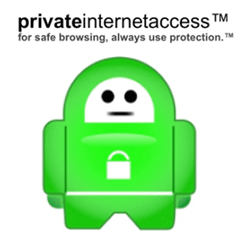
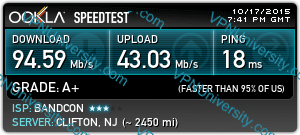
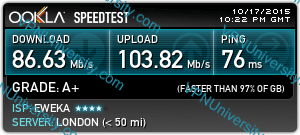

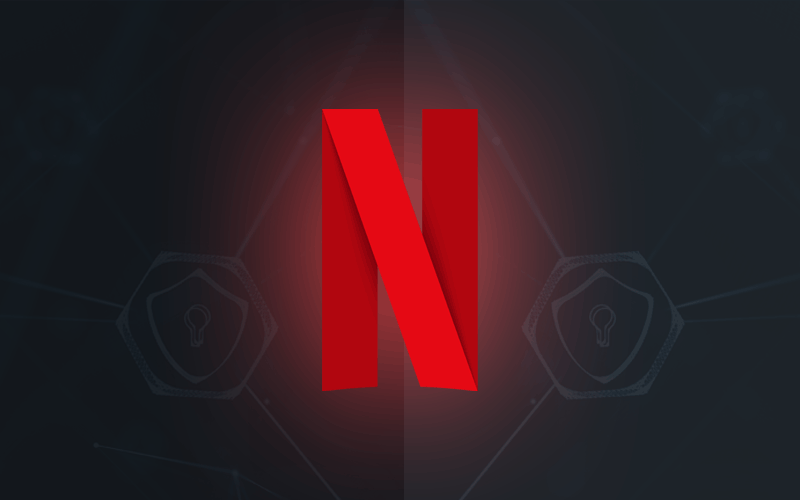

If they don’t keep connection logs then how are able to limit the number of connected devices?
Logs are something that persist after a VPN session is over. The connected devices only toward the cap while their active. So when you connect a new device, the server will check how many active connections are already on that account. Network access rules aren’t the same things as logs, and there won’t be a record after you end the session.